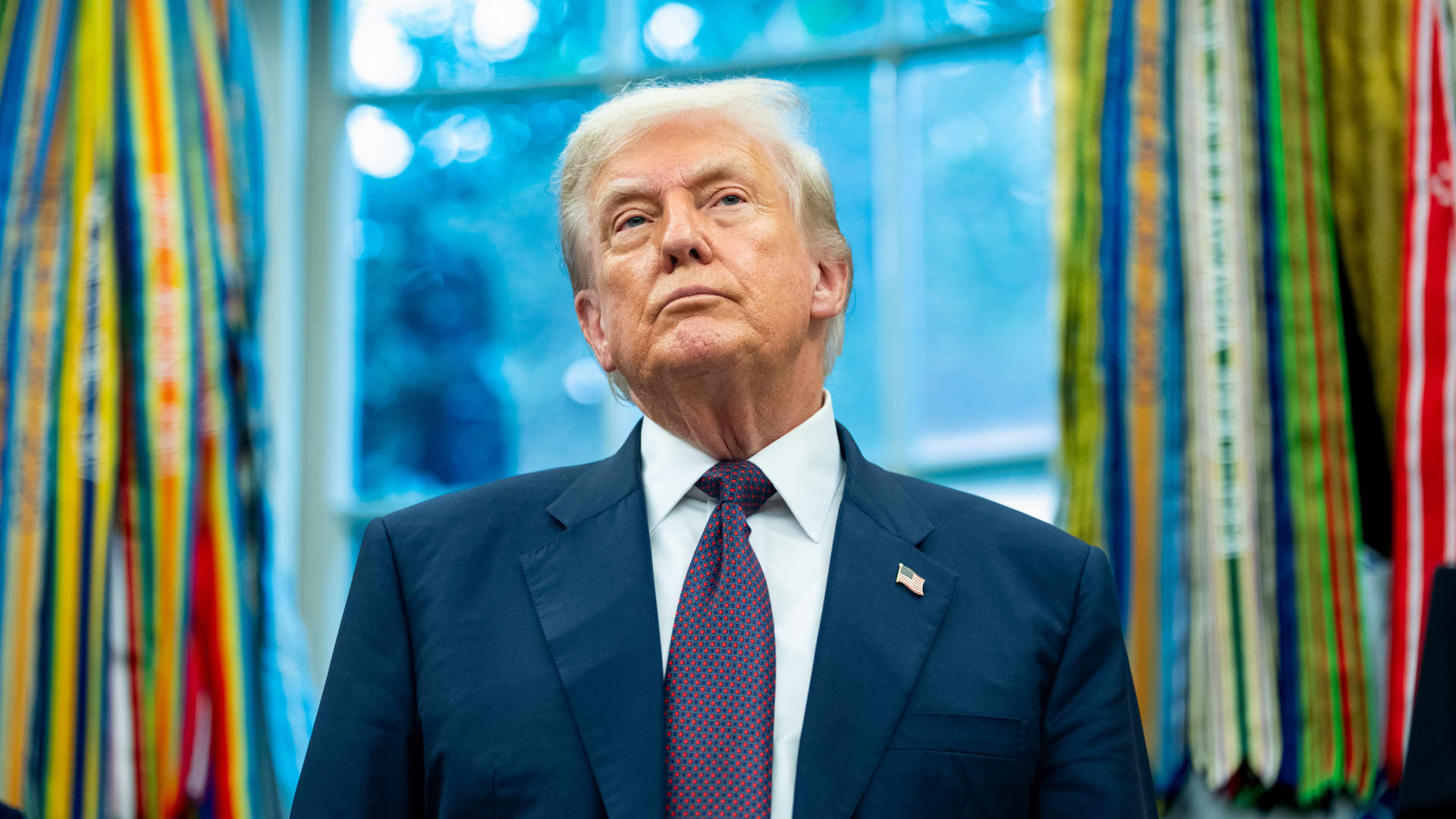President Donald Trump in the Oval Office of the White House in Washington, Aug. 6, 2025.
Bonnie Cash/UPI/Bloomberg via Getty Images
After months of policy pivots, delays and negotiations from President Donald Trump, dozens of key U.S. trading partners were hit Thursday with “reciprocal” tariffs on their exports to the country.
“IT’S MIDNIGHT!!! BILLIONS OF DOLLARS IN TARIFFS ARE NOW FLOWING INTO THE UNITED STATES OF AMERICA!” Trump wrote on social media platform Truth Social.
But even as the duties, which were updated just last week, kick in, much uncertainty remains.
Below is a list of the latest tariffs, with the U.S administration stating that all other countries face a blanket 10% tariff rate:
Various countries — such as Switzerland — are still vying for a deal with the U.S. to lower the levies on their goods. It comes after countries and regions, including the U.K., the European Union, Japan, South Korea, Vietnam, the Philippines and Indonesia, managed to strike trade frameworks.
Others, though, are dealing with significant duties on top of Trump’s reciprocal rate.
This includes Brazil, which is facing a much higher total rate after Trump declared that Brazilian government policies were a threat to the U.S. India, also, has been hit with increased levies over its Russian oil purchases.
Both countries are now facing 50% tariffs on their goods. India, however, still has some time before the full rate kicks in, with tariffs currently at 25%.
Elsewhere, duties on U.S. neighbours Mexico and Canada were in play long before the reciprocal tariff announcement. They are currently facing levies of 25% and 35% respectively, with Mexico in limbo as Trump paused hiking tariffs on the country to allow for negotiations.
China is another outlier. After trade tensions between the country and the U.S. escalated sharply and drove tariffs into triple-digits, the trading partners now appear to have achieved détente. Both sides agreed to reduced tariffs in May, with the truce due to last until Aug. 12. In the meantime, China is facing 30% tariffs.





